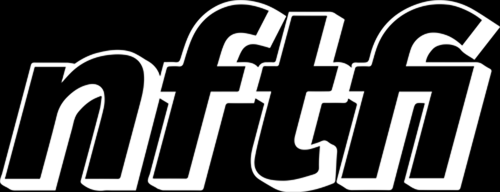
NFTfi
NFTfi is the leading liquidity protocol for NFTs. NFTfi allows NFT owners to use the assets (NFTs) they own to access the liquidity they need by receiving secured loans from liquidity providers, peer-to-peer, in a completely trustless manner.
PoC Required
Rewards
Rewards by Threat Level
Mainnet assets:
Reward amount is 10% of the funds directly affected up to a maximum of:
$20,000Rewards are distributed according to the impact the vulnerability could otherwise cause based on the Impacts in Scope table further below.
Reward Calculation for Critical Level Reports
For critical smart contract bugs on testnet assets, the reward is paid as a flat amount of USD 20 000. This is because there are no actual funds at risk on the testnet, hence limits objective calculation.
Repeatable Attack Limitations
In cases of repeatable attacks for smart contract bugs, only the first attack will be counted, regardless of whether the smart contract is upgradable, pausable, or killable.
Public Disclosure of Known Issues
Bug reports covering previously-discovered bugs acknowledged below are not eligible for any reward through the bug bounty program.
- It is possible to create an offer with an editable bundle to steal customer's funds.
The PermittedNFTsAndTypeRegistry (https://etherscan.io/address/0xadde73498902f61bfcb702e94c31c13c534879ac) defines which NFTs are permitted.
The following address is allowed: 0xf8CB0341563213BF33EaFFc7a6775Ed0Eb6c1401 (NftfiBundler.sol)
address bundle = hub.getContract(ContractKeys.NFTFI_BUNDLER); require(_loanTerms.nftCollateralContract != bundle, "Collateral cannot be bundle");
In a practical scenario, the NFTfi frontend will not display offers from the NftfiBundler.sol collection but the deployed smart contracts do allow them to be created and accepted.
- Create offers with a wrapped collateral (that can be unwrapped) to steal user funds
The
wrapCollateral(...)function inside the newDirectLoanFixedOffer.solwill:
1- Create an NFT that is wrapper for the asset in custody (which can be unwrapped and left empty)
2- Approve the wrapper in the PermittedNFTsAndTypeRegistry.
3- Update the loan and set this wrapper as the asset in escrow instead of the NFT.
After this loan finishes, the wrapper can be used in other loans - attacker front-runs user calls to acceptOffer(...) to empty the wrapper and sends them an empty wrapper.
In practice the NFTfi front-end will not display offers from this collection (the wrapper) but the deployed smart contracts do allow them to be created and accepted.
- It is possible to have some NFTs change ownership (and state) while in escrow such that the loan cannot be resolved (repaid or liquidated) - for example ENS domain names expiring and being re-registered by a new owner while the loan is in progress.
Previous Audits
NFTfi has provided these completed audit review reports for reference. Any unfixed vulnerability mentioned in these reports are not eligible for a reward.
- https://drive.google.com/file/d/1gKMFWlhyPxYICTpNgCHJS4cgFrgB-h05/view?usp=drive_link
- Token audit - https://drive.google.com/file/d/1cJ6DAXcS_DqCJzeZ3w9CvdlWBiFvlBd0/view?usp=sharing
Proof of Concept (PoC) Requirements
A PoC is required for the following severity levels:
- Smart Contract - Critical
All PoCs submitted must comply with the Immunefi-wide PoC Guidelines and Rules. Bug report submissions without a PoC when a PoC is required will not be provided with a reward.
Reward Payment Terms
Payouts are handled by the NFTfi team directly and are denominated in USD. However, payments are done in USDC.
Program Overview
NFTfi is the leading liquidity protocol for NFTs. NFTfi allows NFT owners to use the assets (NFTs) they own to access the liquidity they need by receiving secured loans from liquidity providers, peer-to-peer, in a completely trustless manner.
For more information about NFTfi, please visit https://www.nftfi.com/
NFTfi provides rewards in USDC. For more details about the payment process, please view the Rewards by Threat Level section further below.
Primacy of Impact vs Primacy of Rules
NFTfi adheres to the Primacy of Rules, which means that the whole bug bounty program is run strictly under the terms stated in this page.
Immunefi Standard Badge
NFTfi has satisfied the requirements for the Immunefi Standard Badge, which is given to projects that adhere to our best practices.
KYC not required
No KYC information is required for payout processing.
Proof of Concept
Proof of concept is always required for all severities.
Responsible Publication
Category 3: Approval Required
Prohibited Activities
- Any testing on mainnet or public testnet deployed code; all testing should be done on local-forks of either public testnet or mainnet
- Any testing with pricing oracles or third-party smart contracts
- Attempting phishing or other social engineering attacks against our employees and/or customers
- Any testing with third-party systems and applications (e.g. browser extensions) as well as websites (e.g. SSO providers, advertising networks)
- Any denial of service attacks that are executed against project assets
- Automated testing of services that generates significant amounts of traffic
- Public disclosure of an unpatched vulnerability in an embargoed bounty
- Any other actions prohibited by the Immunefi Rules
Feasibility Limitations
The project may be receiving reports that are valid (the bug and attack vector are real) and cite assets and impacts that are in scope, but there may be obstacles or barriers to executing the attack in the real world. In other words, there is a question about how feasible the attack really is. Conversely, there may also be mitigation measures that projects can take to prevent the impact of the bug, which are not feasible or would require unconventional action and hence, should not be used as reasons for downgrading a bug's severity. Therefore, Immunefi has developed a set of feasibility limitation standards which by default states what security researchers, as well as projects, can or cannot cite when reviewing a bug report.


